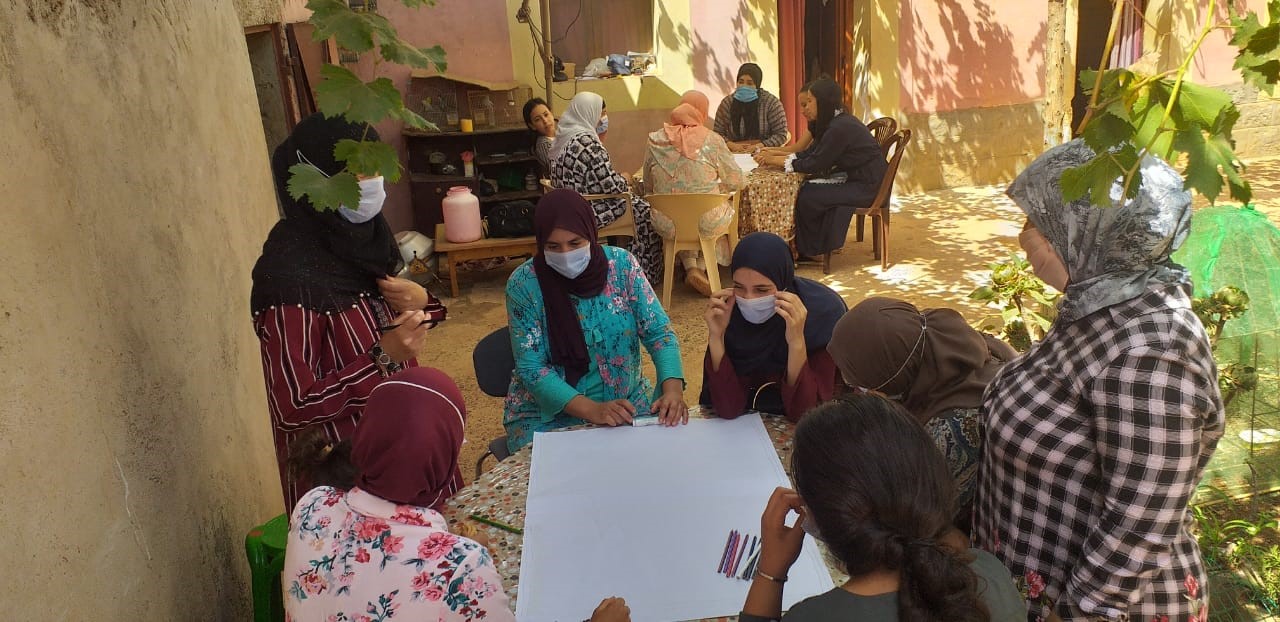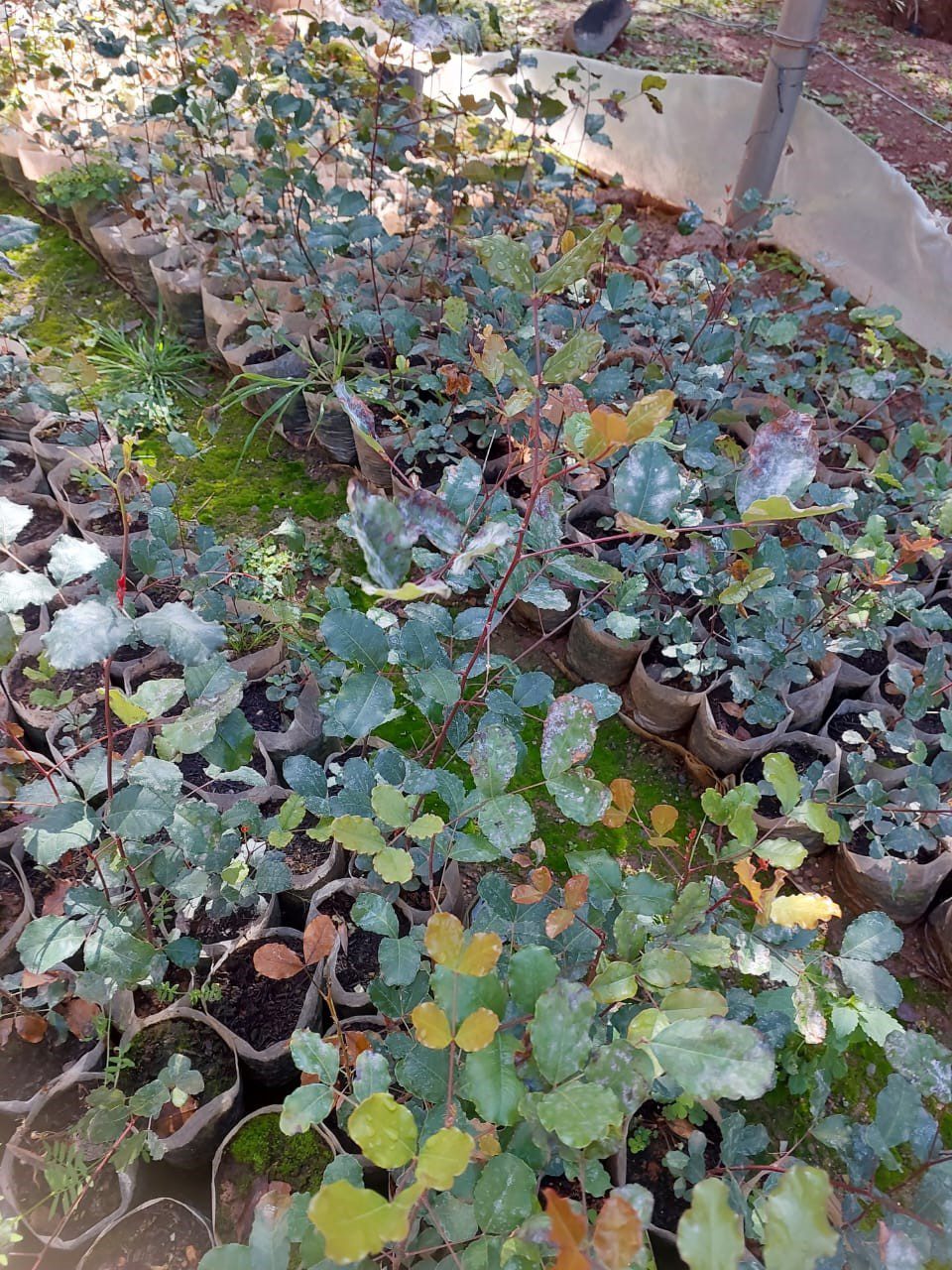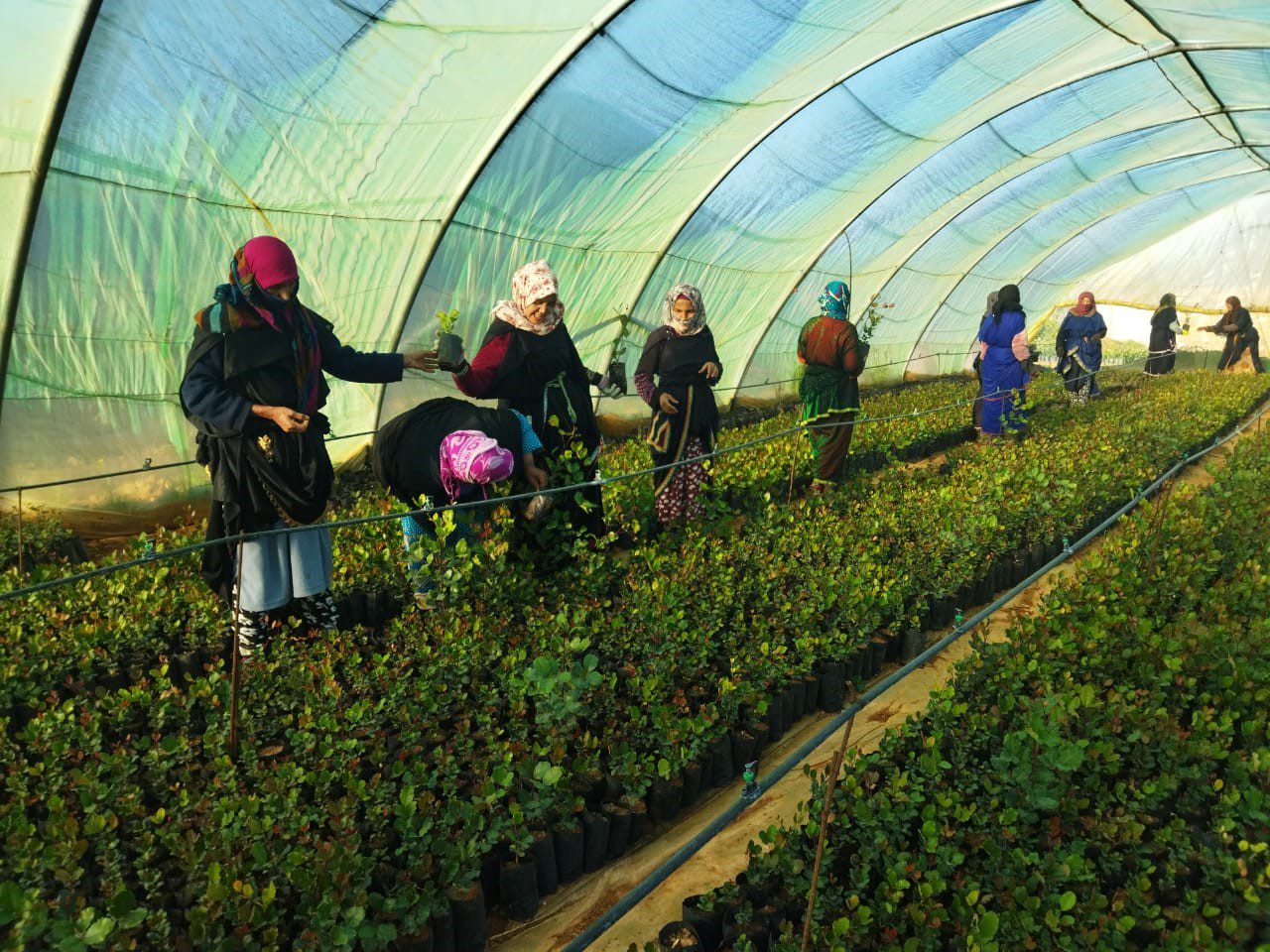Ibtissam Niri
HAF-F2F Empowerment Facilitator

Empowering women is necessary for creating a sustainable society that challenges gender inequality and encompasses equity in economic, social, cultural, and political dimensions. Pursuing the amplification of women’s voices so that they are drivers in securing their socioeconomic and environmental futures is crucial particularly in rural spaces. Manifesting qualities of empowerment becomes a launching point for community-wide planning of human development projects.
The High Atlas Foundation’s (HAF) mission is founded on participatory development. However, we have learned that participation alone does not have the same effectiveness as it does when preceded with empowerment. Many participants have internalized social controls that inhibit the true expression of what they feel and suppress them from pursuing their goals in life. Implementing empowerment workshops at the start of community development is informed from our localized experiences. Through HAF, this entails a four-day self-discovery workshop called IMAGINE, inspired by the Empowerment Institute. IMAGINE focuses on seven key areas (emotions, relationships, sexuality, body, money, work, and spirituality) that help women find their voices and achieve their goals by gaining greater financial independence and promoting change in their communities.
HAF has conducted 111 Imagine workshops, totaling 3,552 hours, benefiting 2,598 participants (777 youth) across 25 provinces in Morocco: Al Haouz, Al Huceima, Azilal, Azrou, Beni Mellal, Boujdour, Berkane, Chichaoua, Dakhla, Demnate, Essaouira, Fes, Guercif, Khouribga, Marrakech, M’gouna, Mohammedia, Oujda, Ouarzazate, Rehamna, Safi, Sefrou, Taroudant, Taounat, Taouririt, and Youssoufia. Through these empowerment workshops, 39 existing cooperatives gained additional skills, and 19 new cooperatives took active steps towards finding resources consisting of at least eight members each, on average.
IMAGINE workshops throughout Morocco have had a significant impact on cooperatives, contributing to both economic and personal growth. Women from various cooperatives have learned to diversify their products, market them more effectively, and initiate certification processes to sell their products domestically and internationally. The technical trainings have allowed women to improve the packaging and presentation of their products, deliver sales pitches more confidently, and share useful information and resources with nearby cooperatives.
Through the “Relationships” module of the Imagine framework, participants are encouraged to embrace attitudes of honesty, helpfulness, and collaboration among members of different communities, increasing agricultural success. For example, one participant realized she did not have enough members in her cooperative and recruited local female neighbors to increase her chances of receiving financial support. Another participant encountered a costly location for a cooperative and instead decided to use a member’s garage to save money and increase the cooperative’s income. Building upon the shift towards economic empowerment, another 30 women of a local community began the search for new job opportunities, overcoming social restrictions within the domestic, housewife role.
Women regained trust in their bodies and beauty and felt more comfortable meeting and discussing with strangers, showing a boost in self-esteem and confidence. Women changed their behaviors towards their husbands and children, especially in the relationship between mothers and daughters, indicating a positive change in their interpersonal relationships. Six co-op leaders resumed their work after previously stopping based on negative feedback from people around them, displaying a renewed sense of confidence and self-belief.
A mother attended one of the workshops with her two daughters and received significant support and encouragement to attend literacy classes. Another mother urged her daughters to take action to improve their lives and emphasized the importance of embracing the chance to change their lives and work towards their goals. Expanding upon the idea of educational empowerment, 16 girls from another village started a literacy program, attending classes for an hour and a half on weekday evenings. They also received training sessions on establishing a women’s agricultural cooperative, resulting in them finding jobs and working in local nurseries. As a result of these IMAGINE workshops, participants are able to recognize areas where they need to improve, set specific goals, and make positive changes that contribute to their personal and economic growth.
Out of 111 workshops, 25 were funded by the USAID Farmer-To-Farmer (F2F) Program, which is an initiative (implemented by HAF in Morocco) that provides technical assistance to smallholder farmers, agribusinesses, and education centers. The F2F-Imagine workshops included 480 participants in 12 provinces in which 17 existing cooperatives were enriched with new skills, four new cooperatives were created, and five civil associations merged to form one agricultural cooperative.
Of the 67 recommendations given by F2F Volunteers to Imagine participants, 54 (81%) were applied by women. Additionally, there were 43 recommendations given by F2F Volunteers to 180 women who did not experience IMAGINE. Of those 43 recommendations, 30 (70%) were applied. Overall, 84 out of the 100 (76%) recommendations made by F2F Volunteers were adopted by host organizations (HOs) during the current F2F program.
For example, five young women participated in an Imagine workshop exercise to outline their goals and envision a future that supports their dreams. Inspired by this activity, the women committed to creating their own cooperative. They then benefit from F2F technical training, learning the basic procedures of creating a cooperative and then submitting the necessary documents to authorities. After one month, the group received their receipt as the Takharkhourte women’s cooperative.
The collaboration between Imagine and F2F continues to support women throughout Morocco. Rhimou, the President of a cooperative, realized the importance of saving money and reconsidered her relationship with money after attending the program. Other women reported feeling more confident in their ability to express themselves, letting go of social marginalization, family instability, and negative feelings. Participants are reminded that self-empowerment is accessible from within, and can transform their involvement in the agribusiness sphere. One female participant shared, “As a mother of three, I have been occupied with homelife for many years. Now I am able to participate in empowering training that helps me to recognize my own great capacities and skills that I would like to use outside of the house”.

HAF is motivated to continue seeking additional partners in supporting women and girls through these projects. Women play a key role in agricultural and local development, yet face socioeconomic and gender constraints that exploit their vulnerability and push them into informal employment domains that neglect their rights, abilities, and potential opportunities. HAF is committed to continue strengthening the resilience of women in the agribusiness sector not only for their equitable participation in society but for communities working towards sustainable development as a whole.






